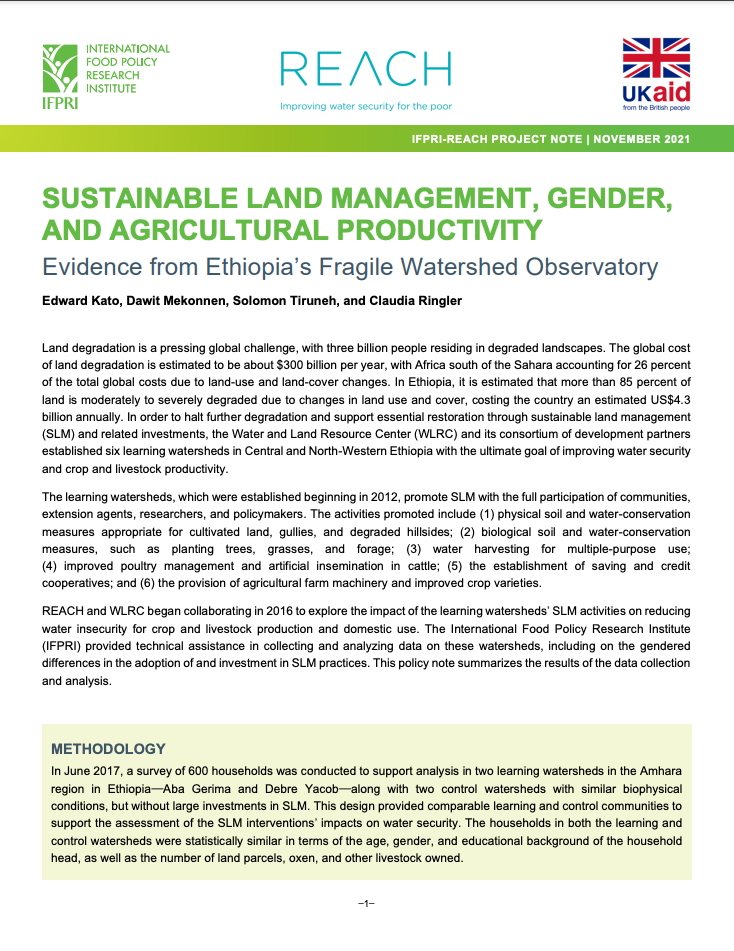Authors: Edward Kato, Dawit Mekonnen, Solomon Tiruneh, and Claudia Ringler
Land degradation is a pressing global challenge, with three billion people residing in degraded landscapes. The global cost of land degradation is estimated to be about $300 billion per year, with Africa south of the Sahara accounting for 26 percent of the total global costs due to land-use and land-cover changes. In Ethiopia, it is estimated that more than 85 percent of land is moderately to severely degraded due to changes in land use and cover, costing the country an estimated US$4.3 billion annually. In order to halt further degradation and support essential restoration through sustainable land management (SLM) and related investments, the Water and Land Resource Center (WLRC) and its consortium of development partners established six learning watersheds in Central and North-Western Ethiopia with the ultimate goal of improving water security and crop and livestock productivity.
REACH and WLRC began collaborating in 2016 to explore the impact of the learning watersheds’ SLM activities on reducing water insecurity for crop and livestock production and domestic use. The International Food Policy Research Institute (IFPRI) provided technical assistance in collecting and analysing data on these watersheds, including on the gendered differences in the adoption of and investment in SLM practices. This policy note summarises the results of the data collection and analysis.

